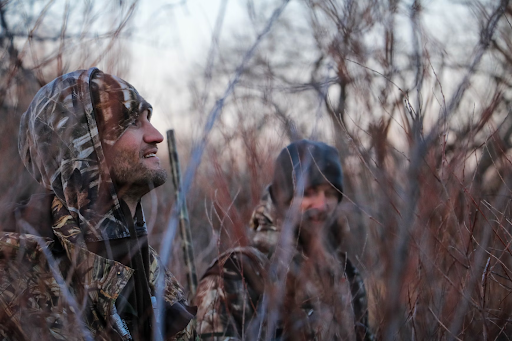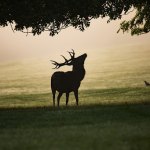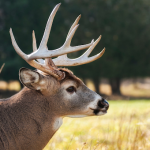
More than 10 million people in the US alone participate in hunting — it’s one of the most popular outdoor sports. But, if you’ve never hunted before, and you’re not sure whether or not you’d like to start, this guide is for you.
We’re breaking down ten of the many reasons why hunting is such a fun, adventurous activity for people looking to spend more time outdoors. If you’re looking for an enriching, nature-centered, ethical hobby to liven up your weekends, consider taking up hunting.
1 It’s Ethical
With improving projectile technologies and marksmanship tools (like rangefinders and laser sights), hunting is more ethical than ever before.
That might sound counterintuitive: how could killing wild animals possibly be ethical? Hunting is one of the most ethical outdoor hobbies primarily because it supports responsible population control.
Climate change and population growth limit wild animals’ habitats. When large groups of a species (whitetail deer, for instance) are forced into a small ecosystem:
- Higher population density can increase competition
- Increased competition can lead to more aggressive breeding
- Aggressive breeding can increase overall offspring and disturb natural selection patterns
- Large numbers of a poorly-selected species can cause damage to their habitats, impacting overall species longevity
When you hunt, you can support healthy population control that benefits both your target species as a whole and their ecosystems.
2 It’s an Opportunity to Connect with Nature
Simply put, hunting gives you a chance to get outside and enjoy the natural world. As a hunter, you can enjoy a wide variety of:
- Habitats and landscapes – You can hunt in the mountains, plains, or even the coast—most habitats offer hunting opportunities.
- Weather patterns – There are hunting seasons open during all four seasons in most states.
- Outdoor environments – Since you can hunt on both private and public land in most states, hunters have opportunities to see both types as they chase their target species.
And, since hunting typically requires participants to walk from their camps or vehicles to their hunting spots, it offers an exercise opportunity, too.
3 You Can Hone Important Skills
Successful hunting requires numerous important skills. And, while marksmanship skills are key to hunting, hunters typically also develop attributes like:
- Perseverance – To hunt especially elusive species like wild turkeys, hunters must develop patience and determination if they want to fill their tags each season.
- Work ethic – Hunting is hard work; between setting up feeders and cameras and cleaning their equipment and harvests, hunting offers a reward for breaking a sweat.
- Respect – Hunting demands respect for the natural world, local conservation regulations, other hunters, and land owners.
- Time management – Since hunting is hard work, it also requires a time investment. Hunters must balance their work time with their hunting time (and the demands of their careers and families), so time management is a common skill among hunting enthusiasts.
4 There’s a Reward
Hobbies like hiking and backpacking are certainly rewarding both mentally and physically — but hunting offers a tangible reward when done well.
The reward of a hunt (an animal harvest) offers opportunities for:
- Food – Most hunters eat what they kill — and many hunted species (like wild turkey and specific duck species) simply aren’t available in most grocery stores. Non-hunters often don’t have the same opportunities for adventurous eating.
- Trophy – Many species can be mounted and preserved for many years, offering a physical reminder of your prowess to show off to family and friends.
- Collections – Keeping a collection of turkey spurs, whitetail racks, or boar tusks isn’t that dissimilar from collecting anything else. But, you’ll know that you harvested your collection yourself.
5 It’s Appropriate for Most Ages
If you’re looking for a family-friendly activity, hunting is an excellent option. People of most ages can develop the skills needed for successful hunting:
- Ability to move through nature to a hunting spot – This doesn’t even necessarily mean walking; many hunting areas are accessible to people in wheelchairs, for instance.
- Proficiency with a weapon – While handing a firearm to a small child might give you pause, remember that you can use a variety of tools to hunt: homemade traps, slingshots, bows, and air rifles are all common hunting implements along with traditional firearms.
- Respect for wildlife – People of all ages can develop respect for the natural world — and respect is a must for hunters.
Whether you’re looking to include your children or your aging parents in your hobby, hunting is generally accessible to people across the age spectrum.
6 There’s a Large Community to Connect With
Above, we mentioned that more than 10 million people in the US are hunters; and there are plenty of people hunting abroad, as well. The hunting community is large and diverse, and the hobby offers an opportunity to connect with people from all walks of life.
You can engage with the hunting community by:
- Joining a non-profit organization like Ducks Unlimited or the National Wild Turkey Federation
- Meeting up with fellow hunters for a range practice session
- Attending trainings like hunter’s safety courses
- Joining a local hunting club or sharing a lease on private land with other hunters
While hunting can also be solitary, there are plenty of opportunities to engage with the social side of the hobby.
7 You Can Use the Same Equipment for Life
Hunting certainly requires an up-front investment in weaponry, clothing, and other supplies like:
- Optics
- Tripods/bipods
- Stands and blinds
- Knives
But, when well-maintained, these supplies can last a lifetime — or longer, if they’re passed down to future generations. In fact, some of the only consumable products required for hunters are ammunition and food (if you choose to use wildlife feeders, which isn’t mandatory).
Maintaining your hunting equipment also offers lessons in preventative maintenance: lessons that you can apply to extend the life of your other belongings (like your car or your home), too.
8 It’s a Combination of Multiple Adventures
Hunting is an excellent hobby for adventure lovers because it can offer a combination of adventures in one package:
- Hiking or backpacking
- Camping
- Navigating and exploring
- Wildlife spotting
- Offroading
- Shooting and marksmanship
If you’re already a nature lover and spend ample time outdoors, hunting is an opportunity to combine some of your favorite pastimes and take them to the next level.
9 You Can Do It By Yourself or with a Group
As we mentioned above, hiking offers ample social opportunities. But, it’s a suitable activity for both solo adventurers and groups.
And, if you’re looking for a little bit of both, you can also tailor your hunting experiences to offer a combination of social time and solitude:
- You can join a hunt club or take solo trips to hunt on public land.
- You can sit in your stand or your blind by yourself or with a buddy.
- You can haul your harvest back to camp or the cleaning rack by yourself or ask other hunters for a helping hand.
- You can cook your harvest and share it with others or savor it on your own.
Hunting is adaptable; whether you’re looking for a social opportunity, much-needed solo time, or both, it’s a hobby that you can tailor to your preferences.
10 It’s Safe
While the hunting community is diverse, all hunters have one thing in common: a basic, foundational focus on safety.
Hunters value:
- Safe interaction with the natural world – Traveling, navigating, and surviving in the elements without threatening yourself or the environment
- Weapon safety – Using clean and well-maintained weapons for feasible shots and following key weapons safety protocols (like keeping firearms pointed in a safe direction at all times)
- First aid – Cleaning and caring for injuries sustained during hunting activities
- Visibility – Wearing blaze orange to be easily seen (and identified) by other hunters
Since hunters prioritize safety so highly, hunting is a relatively low-risk activity.
Hunting: An Adventure Worth Pursuing
If you’re an adventure seeker looking for a fun, exciting way to enjoy the outdoors, develop life skills, interact with a vibrant community, or simply expand your knowledge of the natural world, hunting should certainly earn a spot on your shortlist.
Between spending time outside, tracking a target species, and taking ethical shots, hunting offers countless adventure opportunities for anyone looking for an enriching pastime.






